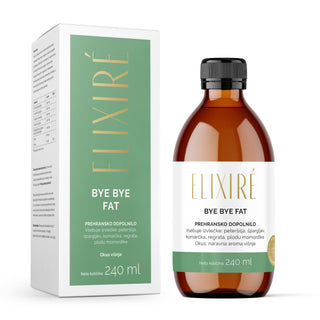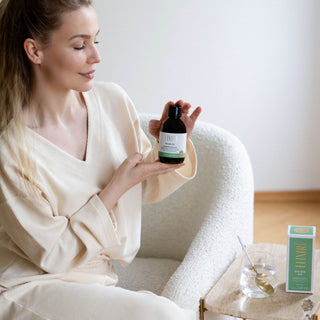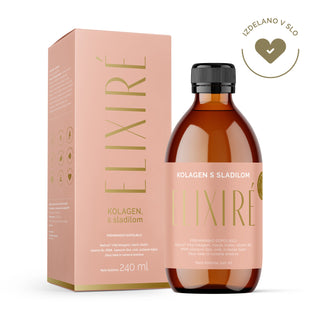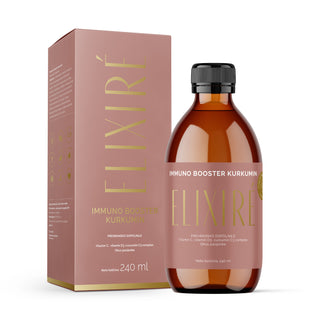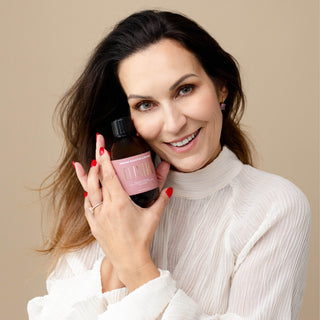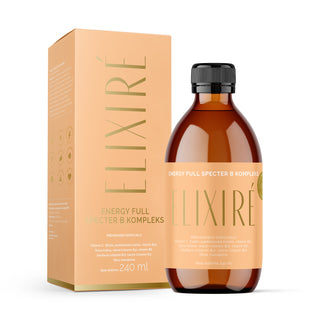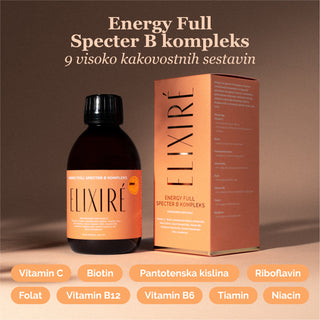Postmenopause is a natural period in every woman’s life, beginning about a year after her last period. Although the most intense hormonal fluctuations of menopause are behind you, your body is still experiencing changes that affect bone health, cardiovascular health, metabolism, and overall vitality. (1*) Understanding these changes and supporting your body in a timely manner can help you navigate this period with full confidence.
What happens after menopause?
During postmenopause, estrogen levels remain low, meaning that many of the previously prominent symptoms—such as hot flashes, insomnia, and mood swings—gradually subside. Many women report feeling more balanced and calm.
At the same time, low estrogen levels affect:
-
Bone health – the risk of bone density loss (osteoporosis) increases. (2*)
-
Metabolism – basal metabolism slows down, which can lead to easier weight gain.
-
Cardiovascular system – estrogen has a protective role, so low levels mean a greater need for cardiovascular care. (3*)
-
Mucous membranes – vaginal dryness and sensitivity are more common, which can affect intimate comfort.
What does your body need right now?
At this stage, it is important to become an active co-creator of your health.
Regular health check-ups at the gynecologist and personal physician are the basis - checking bone density, measuring blood pressure and blood glucose levels can alert you to changes in a timely manner.
Nutrition and life support:
-
Vitamin D and calcium – contribute to maintaining healthy bones and teeth. Vitamin D also supports the functioning of the immune system. (4*)
-
Omega-3 fatty acids – contribute to normal heart function and maintaining normal blood triglyceride levels. (5*)
-
Regular physical activity – weight-bearing exercise (e.g. walking, dancing, light weights) strengthens bones, muscles, and the cardiovascular system.
-
Hydration – sufficient fluid intake helps maintain the flexibility of mucous membranes and stimulates lymph flow.
Don't forget about well-being
Add energizing activities to your daily routine:
hobbies, spending time with loved ones, spending time in nature, and laughing. Stress during this period can put an additional strain on hormonal and cardiovascular balance, so relaxation is key.
Postmenopause as an opportunity
Postmenopause is not the end – it’s the beginning of a new chapter, where with gentle attention and thoughtful choices, you can create a balance that you will glow in. At Elixiré, we believe that strength also means knowing how to slow down and support yourself – physically, emotionally, and mentally.
Literature: (*)
- Source: Postmenopausal hormone therapy: an Endocrine Society scientific statement, (RJ Santen, D. Craig Allred, SP Ardoin, DF Archer, N. Boyd, GD Braunstein, HG Burger, GA Colditz, SR Davis, M. Gambacciani, BA Gower, VW Henderson, WN Jarjour, RH Karas, M. Kleerekoper, RA Lobo, JE Manson, J. Marsden, KA Martin, L. Martin, JV Pinkerton, DR Rubinow, H. Teede, DM Thiboutot, WH Utian). https://pubmed.ncbi.nlm.nih.gov/20566620/
- Source: Pathogenesis of osteoporosis: concepts, conflicts, and prospects, (LG Raisz), https://pubmed.ncbi.nlm.nih.gov/16322775/
- Source: The protective effects of estrogen on the cardiovascular system, (ME Mendelsohn, RHCarp), https://pubmed.ncbi.nlm.nih.gov/10362825/
- Source: Scientific Opinion on the substantiation of health claims related to dietary fiber (ID 744, 745, 746, 748, 749, 753, 803, 810, 855, 1415, 1416, 4308, 4330) pursuant to Article 13(1) of Regulation (EC) No 1924/2006, (EFSA), https://efsa.onlinelibrary.wiley.com/doi/10.2903/j.efsa.2010.1735
- Source: Omega-3 fatty acids and cardiovascular disease: effects on risk factors, molecular pathways, and clinical events, (D. Mozaffarian, J.H.Y. Wu), https://pubmed.ncbi.nlm.nih.gov/22051327/

